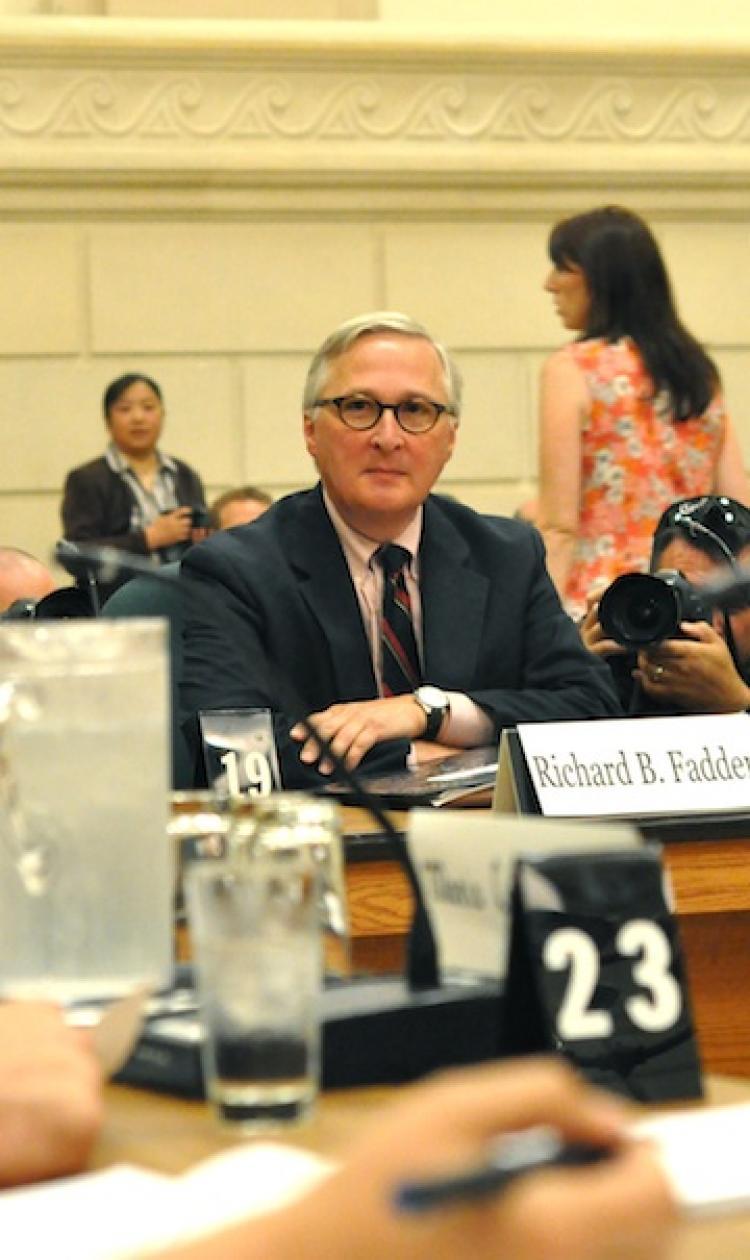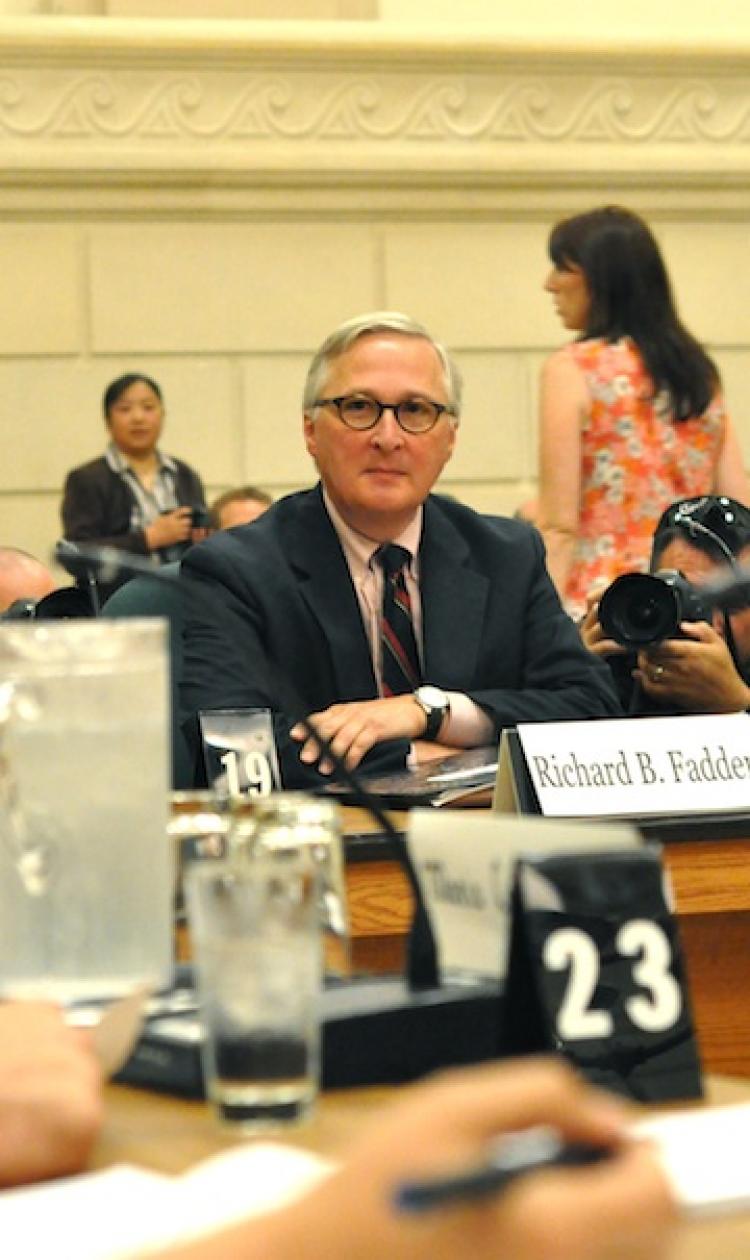Canada’s Spy Chief Stands Behind Comments on Foreign Influence
Canada’s spy boss Richard Fadden said he regretted the candidness, but not the substance of his controversial remarks.

Canada's spy boss, Richard Fadden at a parliamentary committee hearing on Monday. Fadden defended the substance of his remarks to media that some Canadian officials are under the influence of foreign regimes, singling out China in particular. Mathew Little/The Epoch Times
|Updated:






